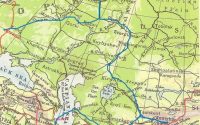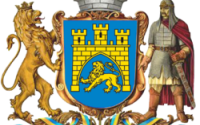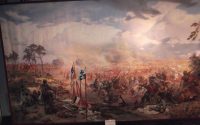Unfinished Memoirs
Within months of the demolition of the Berlin Wall, my father was diagnosed with terminal cancer and died while I was in the United States. I can still remember the date and time I last saw him – 10.30 on Monday 11 June 1990 as Claire and I boarded a flight from Glasgow to Boston. The prognosis was that he might live another 6 months, but he died three weeks later on 28 June.
A person will die but their story continues because, while clearing away his things, we found a handwritten manuscript which ran to about 4 pages. He had begun to write his memoirs. He wrote of ‘putting the record straight’ but he never got far. I had to read the pages twice after which I realised that while I knew my father, now I didn’t think I knew very much about him. What he wrote I now share with you but before I begin let me explain the term ‘Bolshevik’ as it appears in this and subsequent blogs. In 1917, at the time of the Russian Revolution, the Communist Party there was made up of a number of rival factions of which the Bolsheviks were the largest,led by Lenin. The Bolsheviks prevailed and imposed their particular version of Communism on the peoples of the USSR (Union of Soviet Socialist Republics). In power they were ruthlessly harsh, brooking no dissent and administering control through state security police of which during Stalin’s (who succeeded Lenin) time as leader the NKVD (more in future blogs) was the most notorious.
‘This is not written in order to be a script for a television series but simply to put the record straight which has often been twisted to suit the occasion.
Although my father’s regimental base was in Krakow, he was still away on the eastern borders of the newly created Poland, putting the finishing touches to clearing the Bolsheviks off Polish soil. He was a captain commanding an infantry company and had the back up of my uncle (later hero of Westerplatte 1939) with his company of heavy machine guns. Both won the Virtuti Militari (equivalent of VC) during the great battle near the Vistula river, routing Tuchaszewski’s¹ foot army and Budyonny’s² horse army.
Since my mother was expecting my birth and did not want to be alone in a strange city, my father packed her off to stay with her parents. My father’s colleagues doubted the wisdom of this move since Krakow being in the west of Poland was peaceful, almost untouched by the ravages of the Great War, unlike the turbulent borders of eastern Poland. My mother was from the east and she felt she would be more at home there. So, she arrived at my grandparents estate early in her pregnancy and I was born on 18th November 1921 in Przemyslany, 80km southeast of Lwow. At that time it was not quite a town but a sort of large village and growing.

Przemylslany
My grandfather’s name was Moszoro de Massilla and he was 75% Armenian and 25% Hungarian. He married Anna von Podbielska, from a large landowning family in Prussia. From the sound of her name, her family must come from Polish ancestry, just like a multitude of other Prussians, and they were Roman Catholics. I believe they were married in Vienna where my mother was born, and where my grandfather worked in the education department as a schools inspector for what was then Galicia, a region of the Austro-Hungarian Empire, embracing both Krakau and Lemberg (later Krakow and Lwow). He was later transferred to Lwow. The Moszoros came from Lwow, they were landowners and I believe had money. My grandfather had a flat in Lwow where he worked and his estate was in Przemyslany. It must have been some size when during vacations my grandparents were able to accommodate all their family and their families. There were three daughters and two brothers, but one was killed in the war. It was sort of a ranch type house sprawling all over the place and in the middle of the roof there was some kind of square tower with windows. The loft was all floored and my cousins and I used to climb up there to look for treasures and play all sorts of games. Part of it was later locked after we found some old guns and sabres, distributed them among the peasant boys and started playing wars.
There was an old family cook, who used to chase us out from her kitchen with a wooden ladle whenever we invaded her domain, but we used to dance rings around her and she always gave in and gave us what we wanted when grandmother wasn’t there. There were two maids; one was cleaning, washing etc and the other who waited at the table. There were a number of farm hands, a manager and a clerk, but the stables belonged to John. He was a mystery figure and nobody talked about him. From what I gather, he arrived on this steaming tired horse at midnight one night in the early 1920’s and asked my grandfather for a job – just like that. What was most curious was the fact that he was wearing full traditional Kozak (Cossack) dress.
My grandfather took him to one of the outhouses, to have a good rest, gave him some clothes to wear in the morning. The cook fed him and my grandfather said he’d see him in the morning. We were not told about this incident for years but years later my grandmother told me about it. Apparently, John was a high ranking officer in the Kozak regiment or Banner as they called it, and one day some Bolshevik commissars arrived in order to start indoctrinating the Kozaks.
The Kozaks were fiercely independent people and nobody, not the Polish kings, nor the Czars (Russian Emperors) could force them to do anything if they did not agree with it. Those Bolsheviks thought otherwise, fierce argument ensued and John, in a fit of temper, drew his sabre and chopped this guy’s head off and the regiment mutinied. John knew he was for the wall and his regiment would be punished or even liquidated, so he turned west and galloped for about three days, crossed the border at night and arrived at our doorstep. Probably two years later he couldn’t have done it as the Cheka (later NKVD and even later KGB) sealed the whole USSR- Polish border.
He must have been over six feet tall, very dark hair and was quite swarthy like most Kozaks. Like all Kozaks and Tatars, he was a magnificent horseman and I don’t think there is anybody in this world to beat them. He it was who taught us to ride, groom and love horses. He bought a mandolin and taught us Kozak songs of the steppes. He was a very sad man in his heart and later, when we were older, we guessed he must have left behind a girl or wife and it must have been agony for him. He never married in Poland, but when my grandfather sold out eventually, he left John quite a bit of money.
When we were on holiday on the estate, my grandparents never bothered too much about us because they knew we were either horse riding with John or were playing with he village boys (tough guys) or we would ‘help’ the farm on the fields and driving the farm carts. We would only appear for food. It was a great life. When not ‘working’, we would fish either on the river or lakes, most of the time catching nothing. There were always plenty of animals and birds around the house, but the best entertainment was trapping and shooting rats in the barns. The rifles we used were small calibre and we were always supervised by John. We also did a lot of canoeing, swimming and diving on the river or the lake. We were always sorry when we had to leave at the end of August, promising our village pals that we’ll be back next year’…….there it ended.
It might not seem much to use as a starting point, but already I had a basic understanding of the political situation in 1921, when my father was born. I already knew that his father was a professional soldier who had fought in three major wars; World War I in the army of the Austro-Hungarian Empire, the little known but hugely consequential Russo-Polish War³ (in Poland this is known as the Bolshevik War as Poles maintain that the enemy was not the Russian people but the Bolsheviks) which had lasted from 1919-1920 and World War II. My father had never mentioned Przemyslany, until now, nor the circumstances surrounding that town being his birthplace. The mention of two Red Army Generals put my father’s story into a historical context rather than personal anecdotes.
The family’s social status, military on one side and professional on the other, might have placed them, with later reference to Robert Zamoyski’s significant ‘History of Poland’ as ‘szlachta’; translated as gentry or nobility, but upper middle class seemed more appropriate.
I recall asking my father about his impressions, after his visit back to Poland in 1974 and his reply “It’s full of Poles” puzzled me, until he explained that he grew up in the company not just of Poles, but also Ukrainians, Belarussians, Poles of Jewish origin and Germans. That to him was the nature of Poland. The ethnicity of his grandfather bore this out and even then many years later surprises waited, including my father’s statement that Anna von Podbielska was a Prussian Roman Catholic, which at the time seemed to be incorrect. Yes, my father, whilst enjoying the joys of childhood, did so in the midst of the great upheavals taking place in Central Europe during the inter-war years, where national resentments carried over from The First World War, bubbled furiously ready to explode while the USSR was torn, firstly by civil war then followed by Stalin’s rule. Then on 1st September 1939, it happened; Germany invaded Poland from the west and sixteen days later on 17th September, the USSR from the east, which included the territory where my father lived. The major upheaval had begun.
End
¹ Marshal Mikhail Tukhachevsky (Executed in the Great Purge of 1937)
² Marshal Semyon Budyonny (Marshal of the Soviet Union)
³ ‘White Eagle and Red Star’ by Norman Davies.


